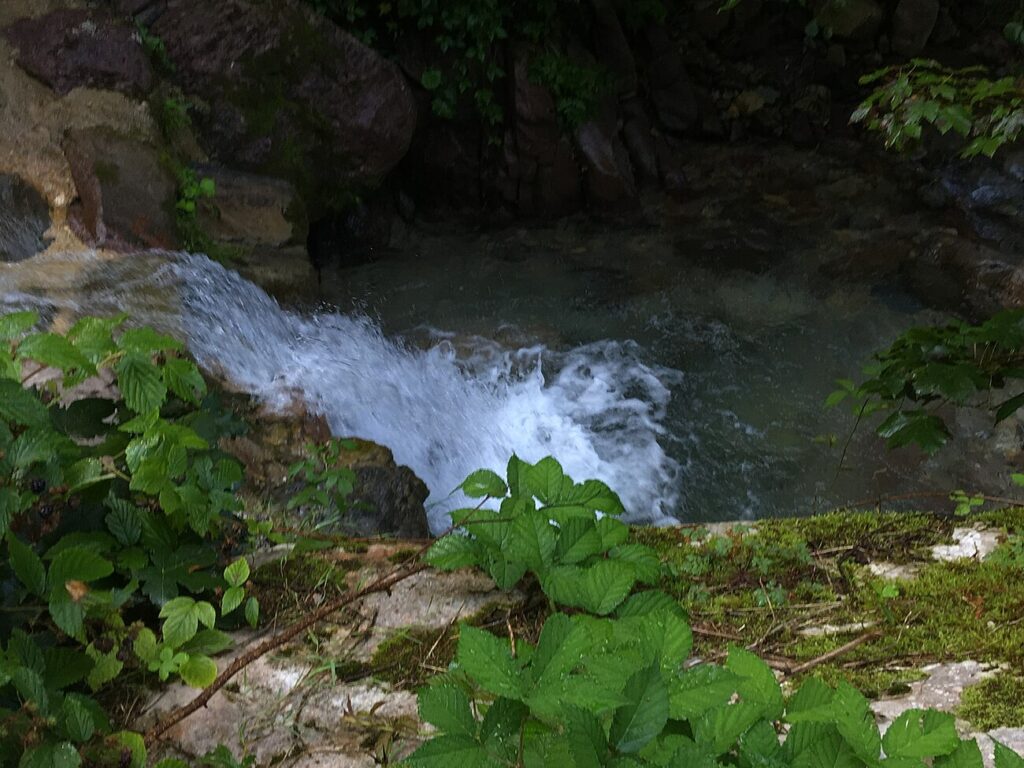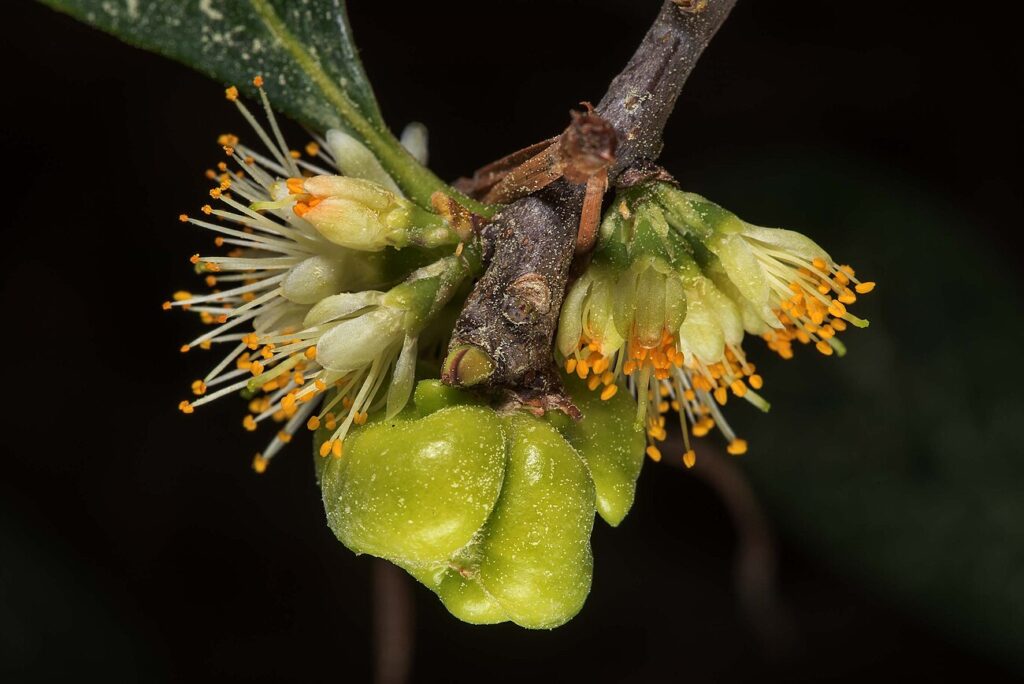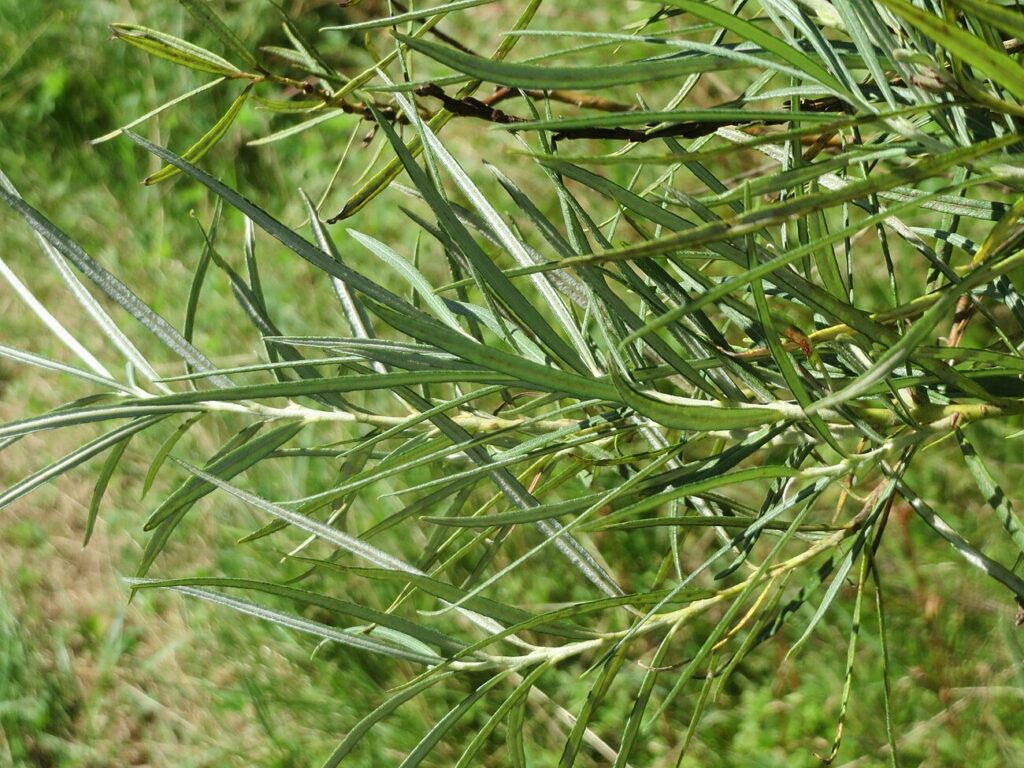Exploring Yankee Blackberry, Black Raspberry
Scientifically recognized as Rubus fruticosus and classified under Rosaceae, stands out as a distinctive Deciduous shrub known for its unique characteristics. While it may also be found under other Synonyms, Rubus ursinus, Rubus plicatus.withNavaho’, ‘Black Diamond form. You can use our free plant care app PlantPlants to identify Yankee Blackberry, Black Raspberry.
Temperature
-20 F (min), 100 F (max)
Watering
Regular watering, do not let them dry out
Fertilizing
Balanced fertilizer (10-10-10)
Sunlight
Full sun to partial shade
Toxicity
Non-toxic; safe for consumption

Appearance and Growth Of Yankee Blackberry, Black Raspberry
At maturity, this species reaches approximately 3-6 feet tall, can spread up to 3-4 feet wide, presenting Compound leaves with 3-5 leaflets, serrated edges, dark green color along with White to pale pink flowers, clustered, blooming in late spring, followed by Aggregated drupelets, black when ripe, sweet-tart flavor. These features are supported by a reliable Fibrous root system with ample underground runners, ensuring stability and sustained growth.
Yankee Blackberry, Black Raspberry Origin and Habitat
Native to Native to Europe, but has spread to North America, Yankee Blackberry, Black Raspberry thrives in Edges of forests, roadsides, disturbed areas at elevations around Sea level to 1500 meters. Best suited for USDA Hardiness Zone 5-9. Whether grown indoor, in a curated garden or a more natural setting, its ecological requirements help maintain its vigor over time.



How to take Care of Yankee Blackberry, Black Raspberry
Light, Soil and Watering Yankee Blackberry, Black Raspberry.
You can use our free plant identify app PlantPlants to chose the best spot for Yankee Blackberry, Black Raspberry, This plant prefers Full sun to partial shade and flourishes in Well-drained, fertile soil with organic matter with a soil pH of about 5.5-7.0.
Yankee Blackberry, Black Raspberry needs watering,Regular watering, do not let them dry out, guided by PlantPlants app, You can get plants daily watering schedule. to maintain Moist soil but well-drained, ensure steady hydration. Applying water through Drip irrigation or soaker hoses supports even distribution and helps prevent overwatering or dryness.
Temperature and Humidity
Yankee Blackberry, Black Raspberry performs best within 60 F to 85 F. Its ideal growth occurs at around 70 F-75 F, though it tolerates ranges from -20 F (min), 100 F (max). Additionally, maintaining Moderate humidity, benefits from occasional misting in dry conditions encourages healthy foliage and overall plant vigor.
Fertilization & Soil Health
Feeding with Balanced fertilizer (10-10-10) at the recommended Seasonal Application Frequency on PlantPlants App keeps nutrients balanced. Incorporating Organic compost or well-rotted manure enhances soil structure and fertility, while staying alert to Yellowing leaves, poor growth helps you adjust care as needed to maintain optimal plant health.
Routine and Maintenance
Regular attention ensures this plant’s beauty and longevity. Late winter to early spring for Thin out older canes, cut back to ground for new shoots tidies its appearance, while Every 2-3 years if grown in pots may be necessary as it grows, requiring a Increase by 2 inches in diameter increase and a fresh 50% potting soil, 30% compost, 20% perlite. for Staking or Support. Needs support if canes are high, such as a trellis.
Seasonal Changes and Propagation of Yankee Blackberry, Black Raspberry
During Winter months, growth may slow and some Leaves turn yellow/brown before dropping in the fall can occur. For those looking to propagate, consider Stem cuttings, layering, and seed propagation and provide Stratify seeds for 6-8 weeks at cold temperatures when starting from seed. If using cuttings, follow Take 6-inch cuttings in late spring; keep the soil moist until roots develop to ensure successful rooting and healthy new plants.
Pests, Diseases and Prevention
our free plant identify and care app PlantPlants can help you diagnosisYankee Blackberry, Black Raspberry problems.Though generally robust, keep watch for Spider mites, aphids, Japanese beetles and remain vigilant against Powdery mildew, root rot, rust. Implementing Proper spacing for air circulation, avoid overhead watering and applying Neem oil for pests, fungicides for diseases when issues arise will help sustain the plant thriving.
Companions and Uses of Yankee Blackberry, Black Raspberry
This plant pairs nicely with Native wildflowers, mint, and legumes and shows May inhibit the growth of some plants due to root secretions, making it a flexible choice for various Ground cover, erosion control, ornamental garden.
Edible and Cultural Aspects
the Edible Parts: Berries, leaves. Toxicty of Yankee Blackberry, Black Raspberry, Non-toxic; safe for consumption. learning about its Summer; pick when fully ripe, Jams, jellies, desserts, smoothies, and High in antioxidants, vitamin C, and dietary fiber can be intriguing for culinary explorers. Some traditions highlight its Used traditionally for digestive issues and inflammation or note its Popular in traditional recipes and for foraging.
Conservation and Status
With an Not listed as threatened, proper Respect natural habitats and promote native cultivation practices
Frequently Asked Questions
1. What is the best time to plant Yankee Blackberry?
Early spring or late fall is ideal.
2. How do I prevent pests on my blackberry plants?
Regularly inspect plants and apply neem oil as a preventive measure.
3. Can I grow Yankee Blackberry in a container?
Yes, ensure the container is large enough and has good drainage.
4. When do Yankee Blackberries bear fruit?
They typically bear fruit in mid to late summer.
5. How do I know when the blackberries are ripe?
They turn dark purple or black and come off easily when gently pulled.
6. Are blackberry leaves edible?
Yes, they can be used for herbal teas.
7. Do I need to prune blackberry plants?
Yes, pruning is necessary to promote new growth and fruit production.
8. Can I grow blackberry plants in shade?
They thrive in full sun but can tolerate partial shade.
9. How can I propagate Yankee Blackberry?
Propagation can be done through stem cuttings or layering.
10. Are there any diseases that affect blackberry plants?
Yes, common diseases include powdery mildew and rust; ensure good air circulation to prevent them.




